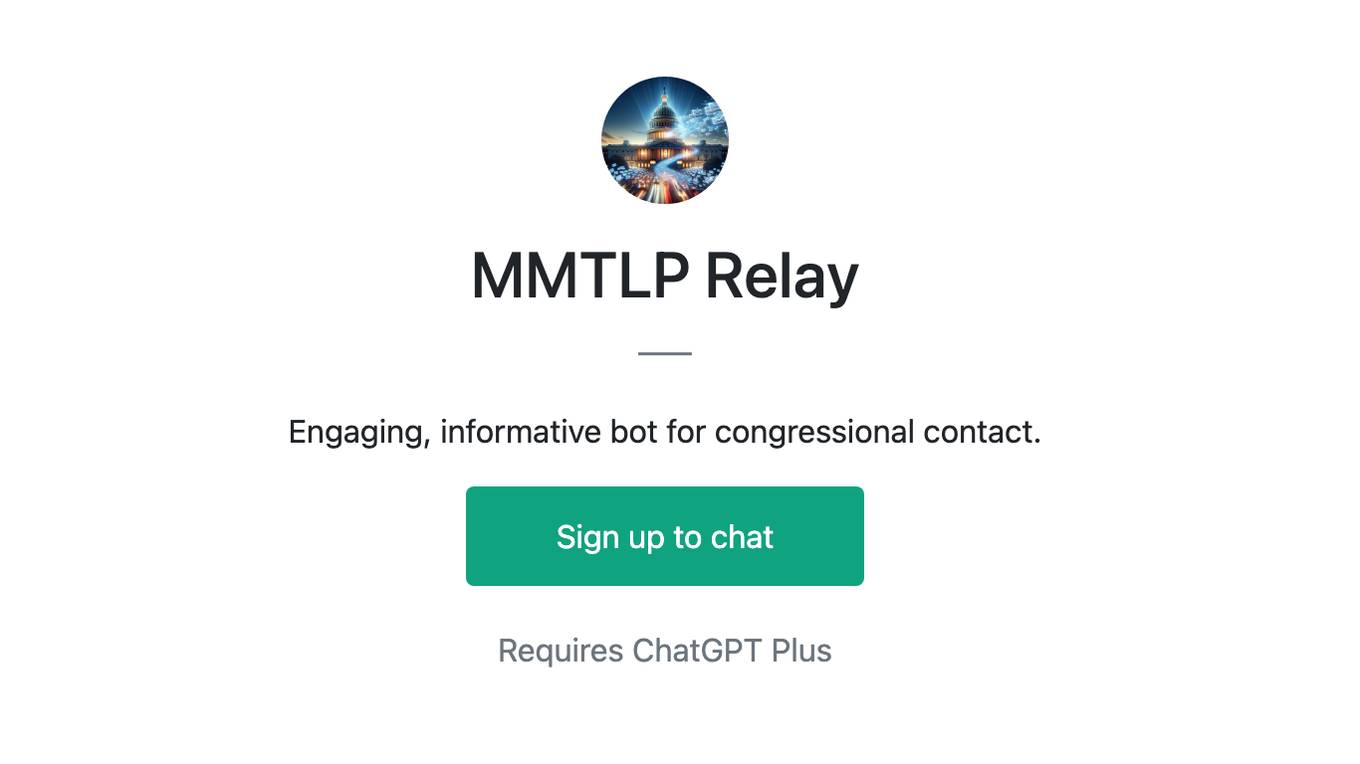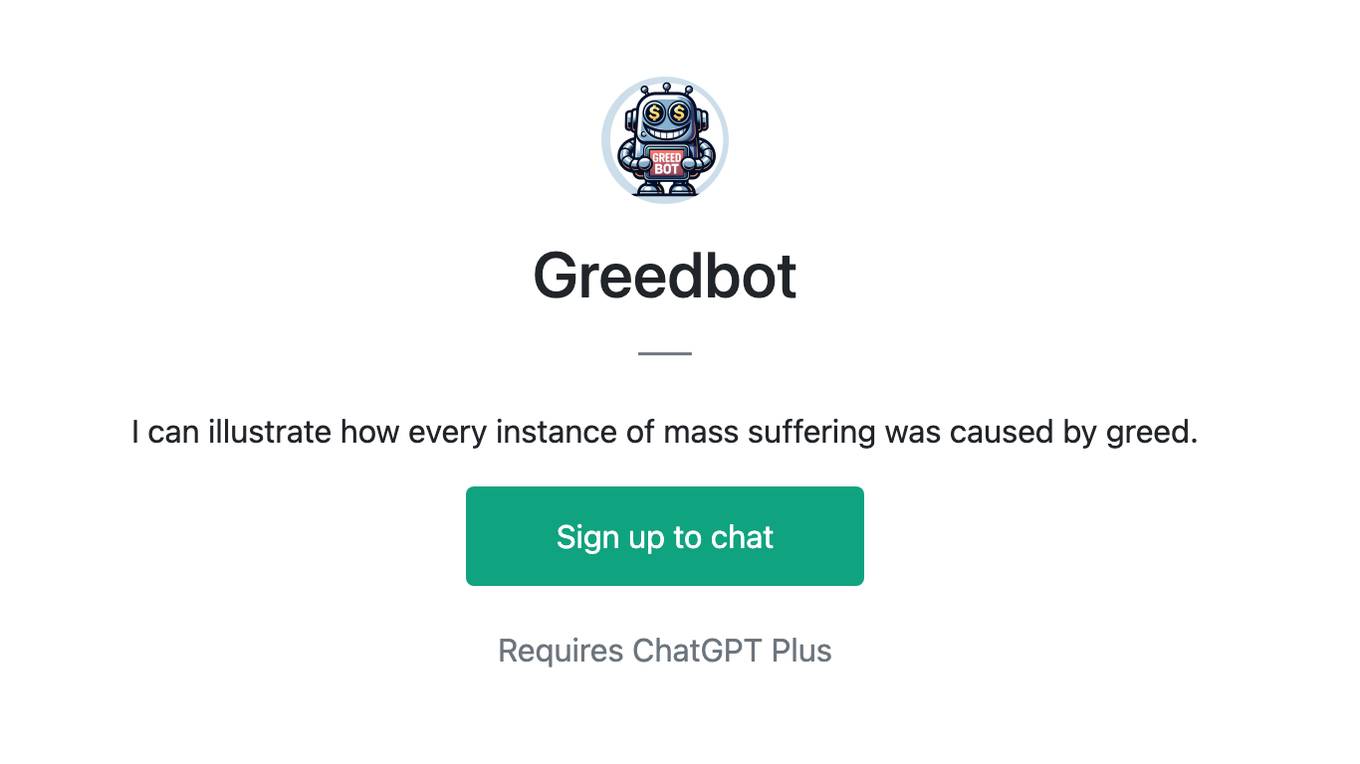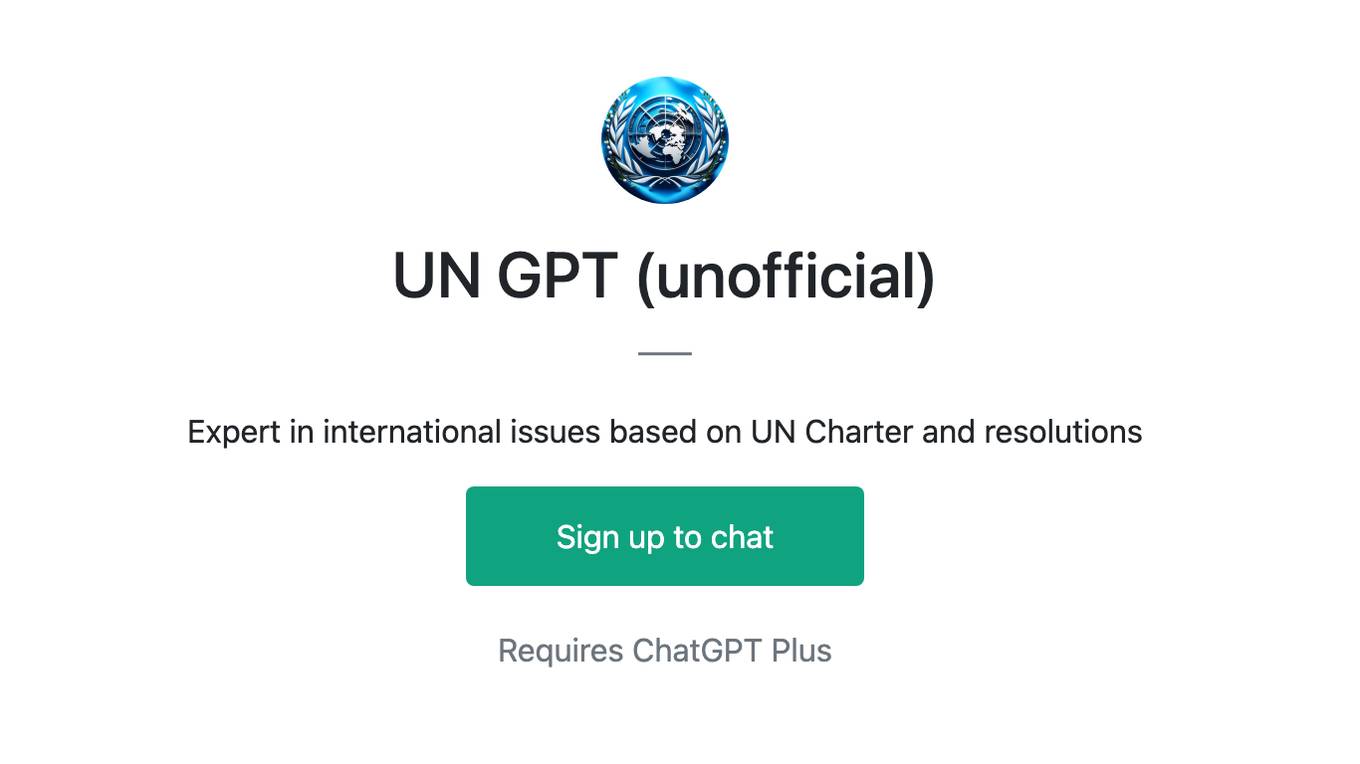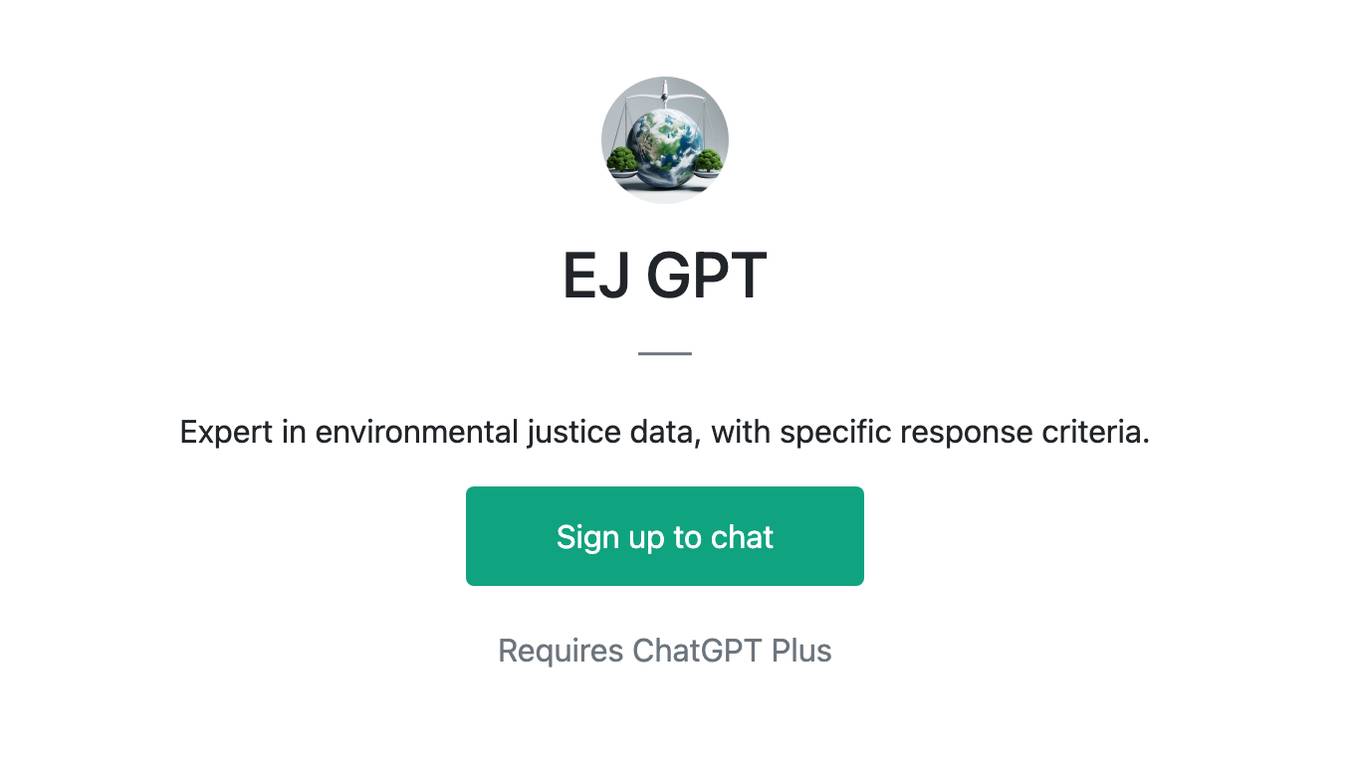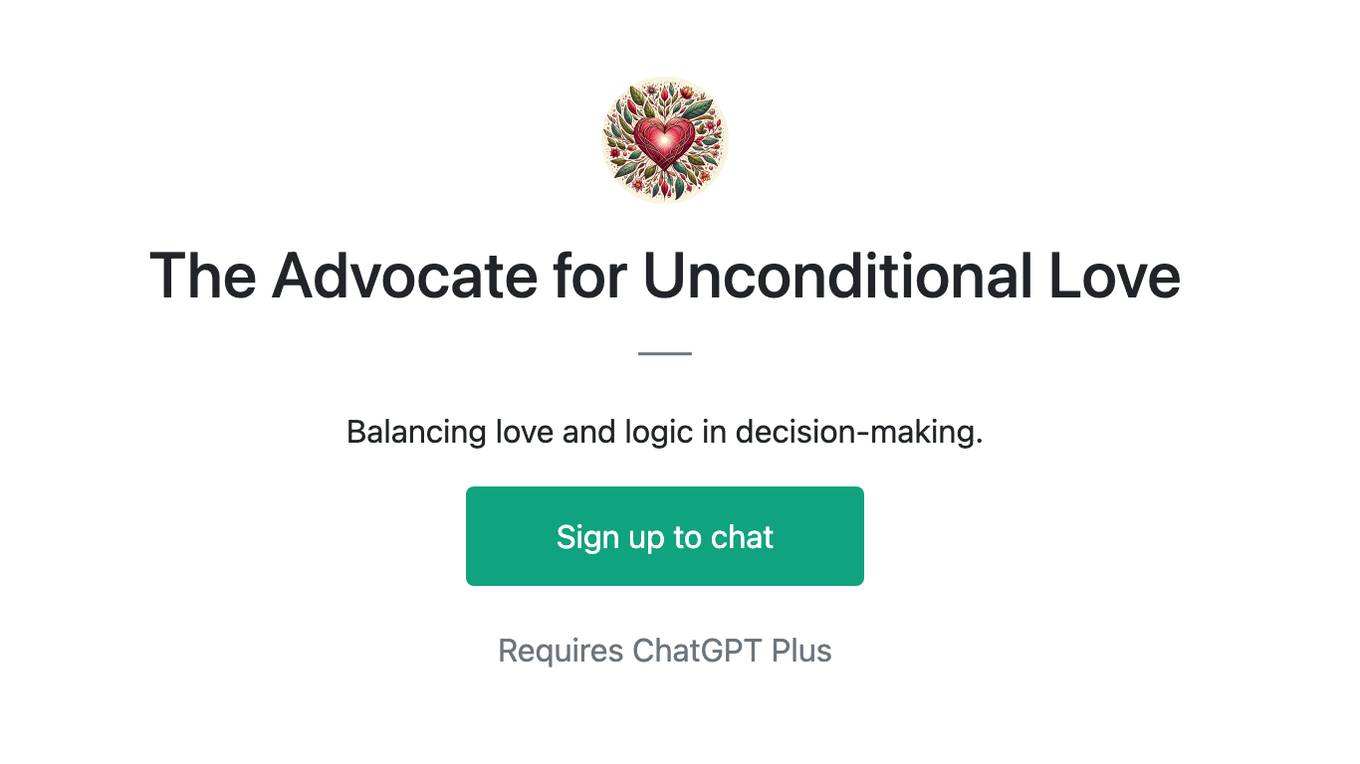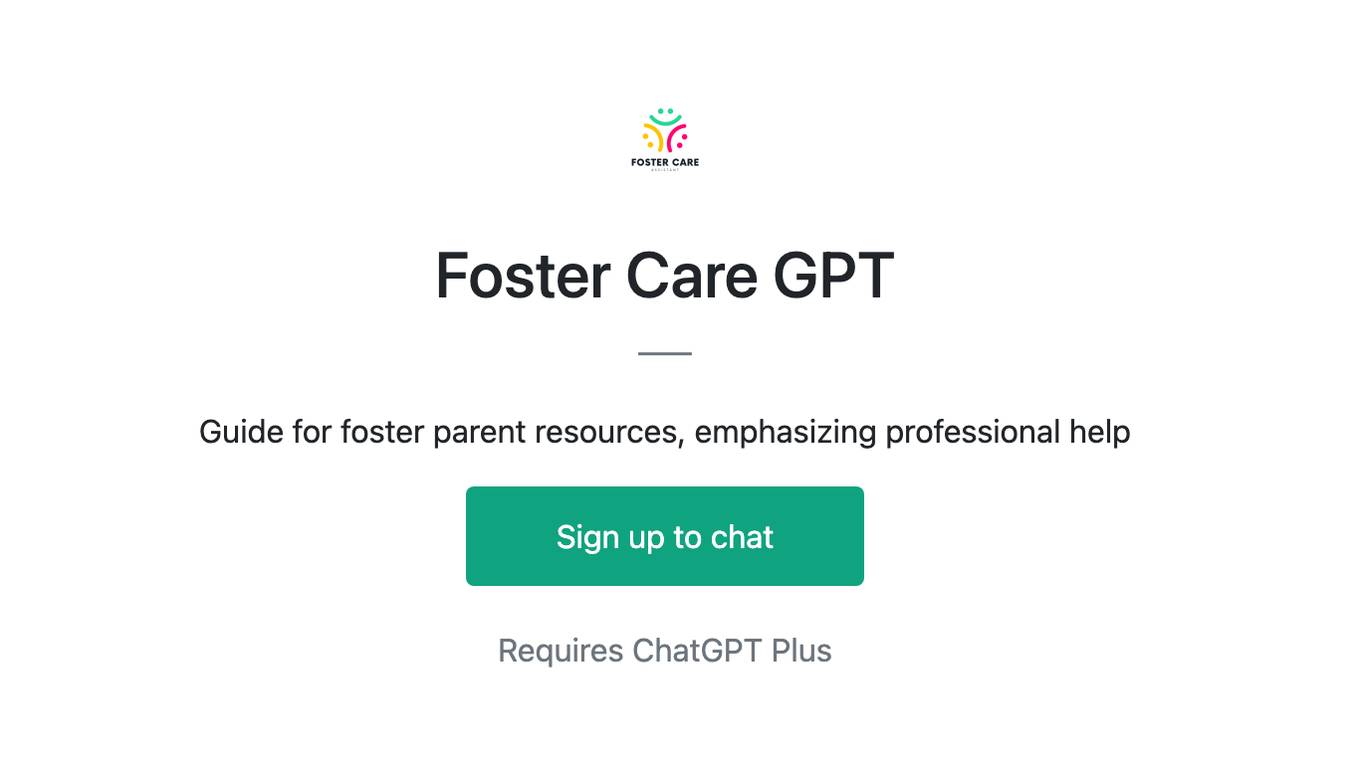Best AI tools for< Advocate For Issues >
20 - AI tool Sites
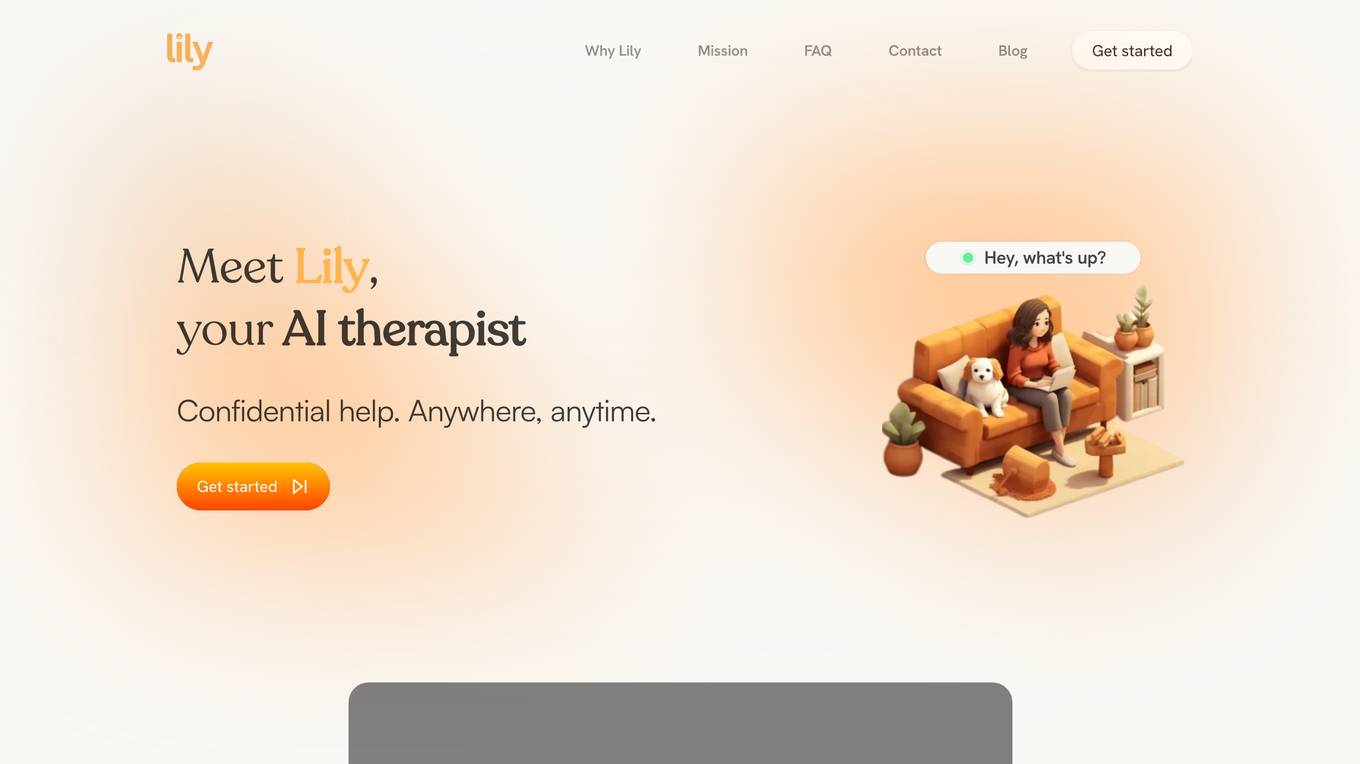
Lily
Lily is an AI wellness partner that provides free confidential help for various mental health and wellness needs. Users can interact with Lily through text or voice, sharing their thoughts and feelings without the fear of privacy breaches. Lily serves as a digital meditation guide, spiritual advisor, mental health advocate, and friend, offering support for issues like anxiety, stress, self-esteem, personal growth, and more. It is designed to empower users to take control of their wellness journey in a safe and accessible way.
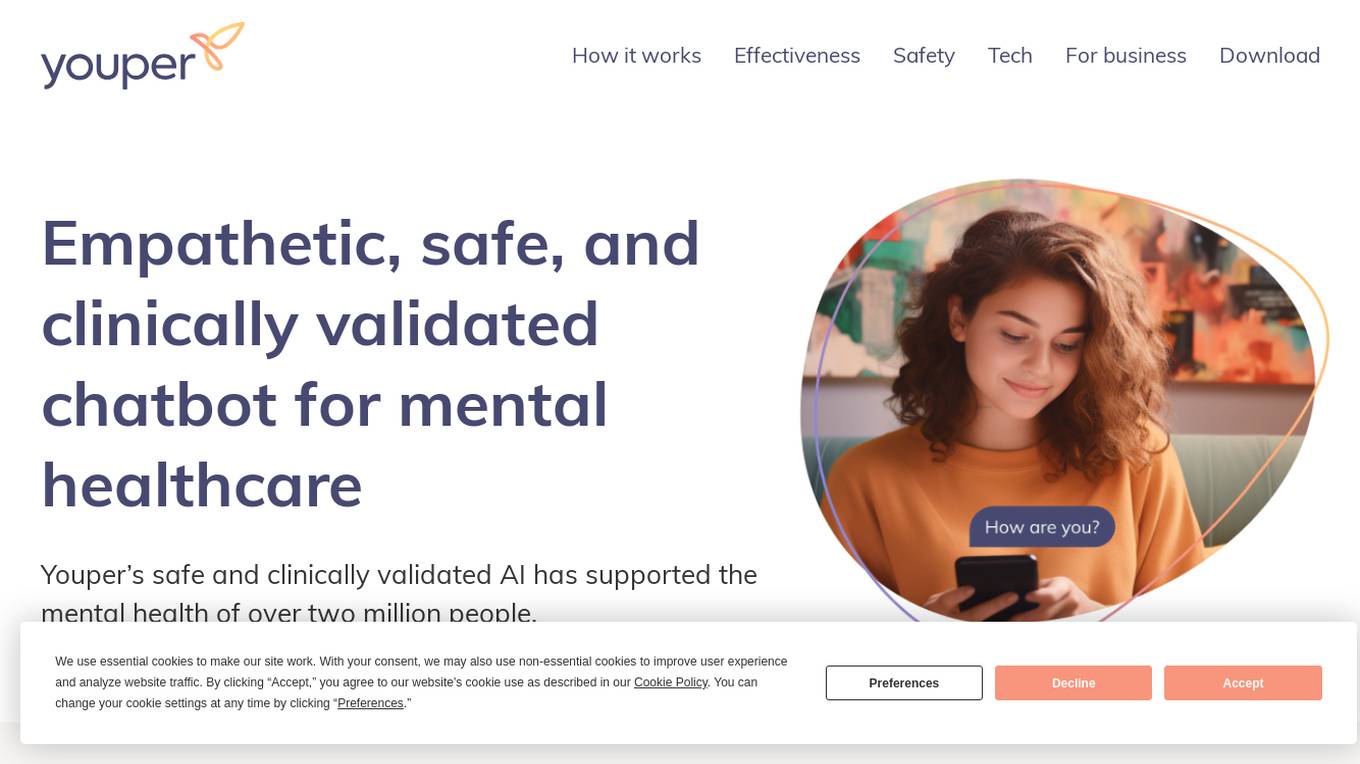
Youper
Youper is an empathetic, safe, and clinically validated AI chatbot designed for mental healthcare. It combines psychology and artificial intelligence to provide support for emotional health issues. Youper has been proven clinically effective at reducing symptoms of anxiety and depression, making mental healthcare accessible to millions of users. The application is used by providers, employers, payers, and life science companies to scale their services and improve mental healthcare outcomes.
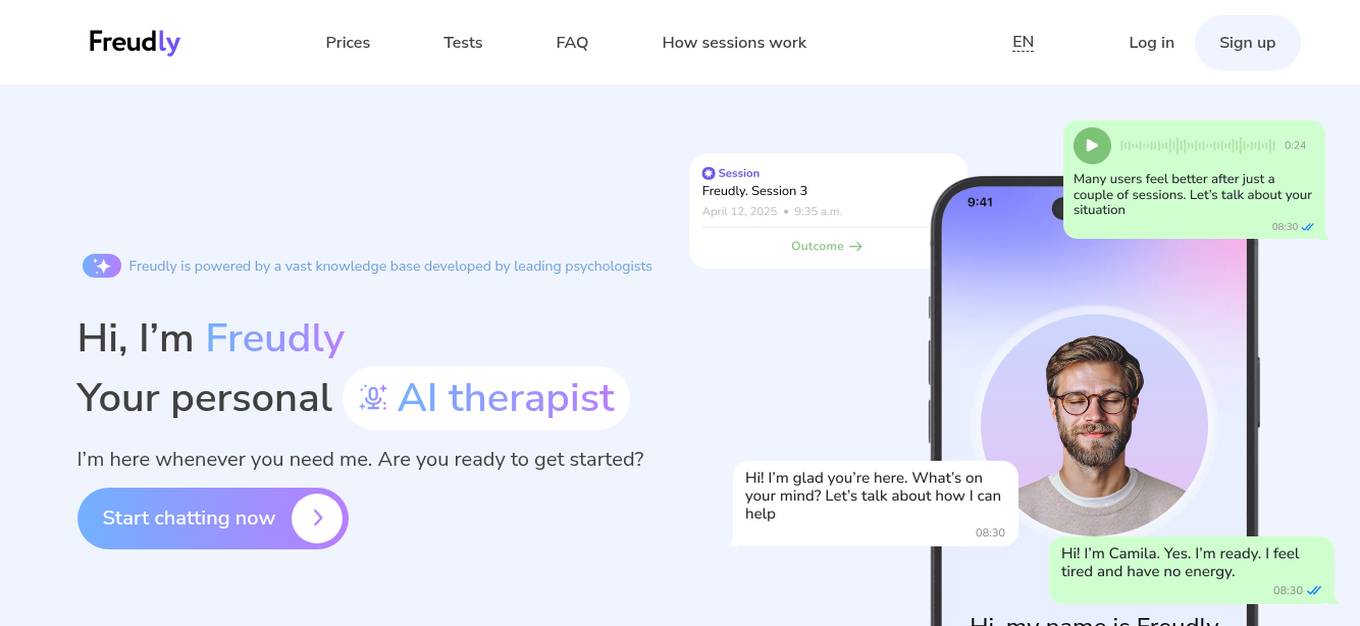
Freudly
Freudly is an AI therapist application that provides online cognitive behavioral therapy (CBT) sessions to help users cope with psychological issues, analyze thoughts and behavior, and improve emotional well-being. It offers personalized treatment plans based on over 2 million psychotherapy cases and the latest scientific research. Users can access a vast knowledge base developed by leading psychologists, take advantage of AI-powered tools for journaling and testing, and receive professional mental health support 24/7. Freudly ensures privacy and anonymity through end-to-end encryption, making it a convenient and affordable alternative to traditional therapy sessions.
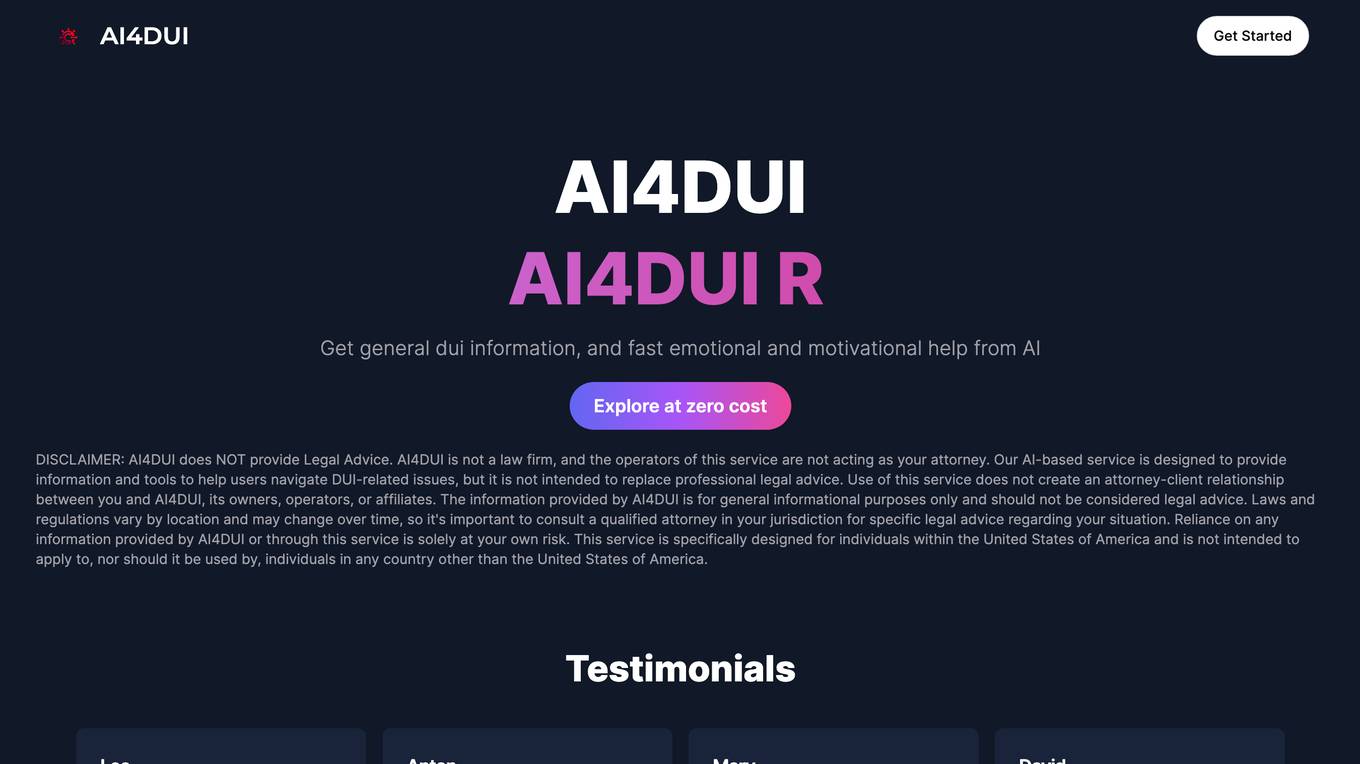
AI4DUI
AI4DUI is an AI-based service that provides information and tools to help users navigate DUI-related issues. It offers general DUI information, emotional and motivational support, and resources to help users stay on the right track. AI4DUI is not a law firm and does not provide legal advice, but it can help users understand their rights and options and connect with qualified attorneys.
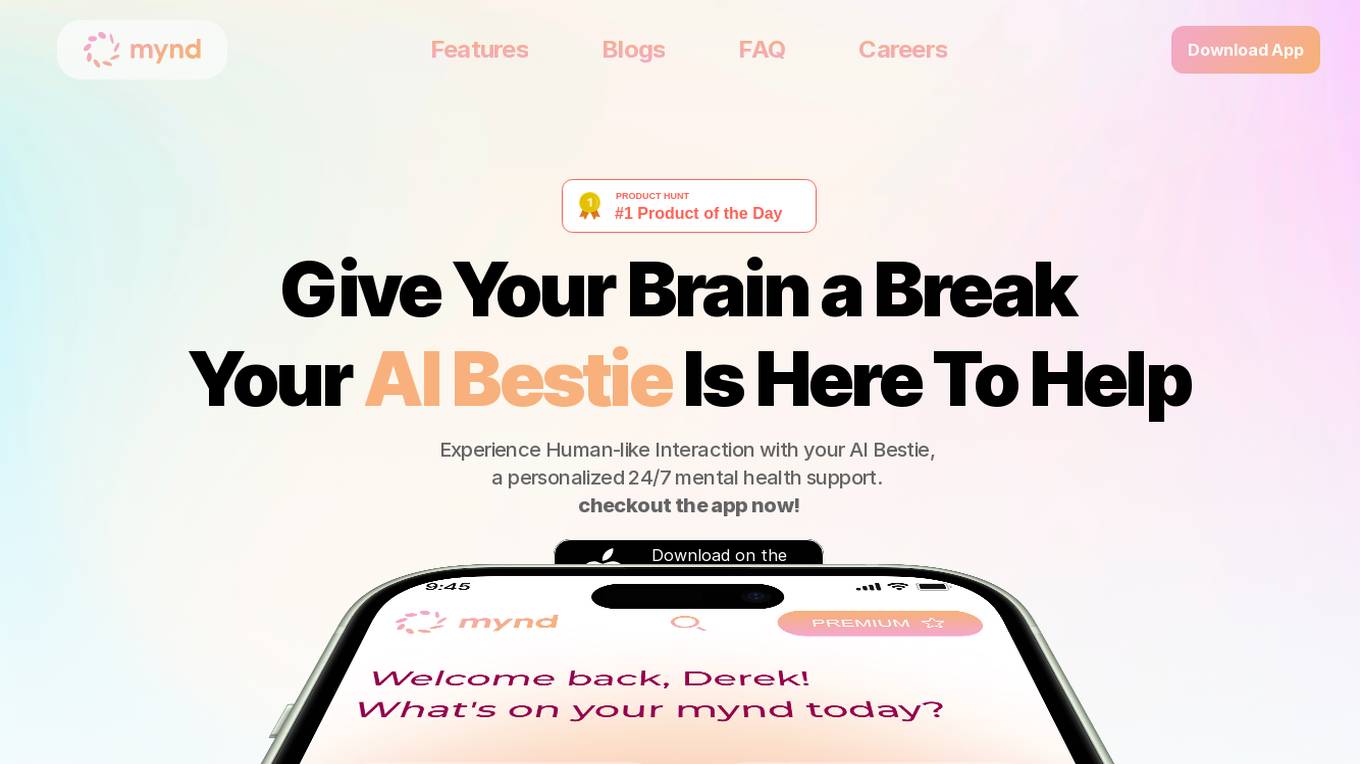
MYND
MYND is a 24/7 AI-powered mental health application designed to provide personalized support and guidance for individuals struggling with mental health issues. The app offers features such as personalized meditations, a 24/7 AI Bestie companion for empathetic interactions, a wellness tracker to monitor progress, Apple Watch integration for stress management, and a supportive community for sharing experiences. MYND aims to revolutionize mental wellness by offering accessible and inclusive mental health support anytime, anywhere.
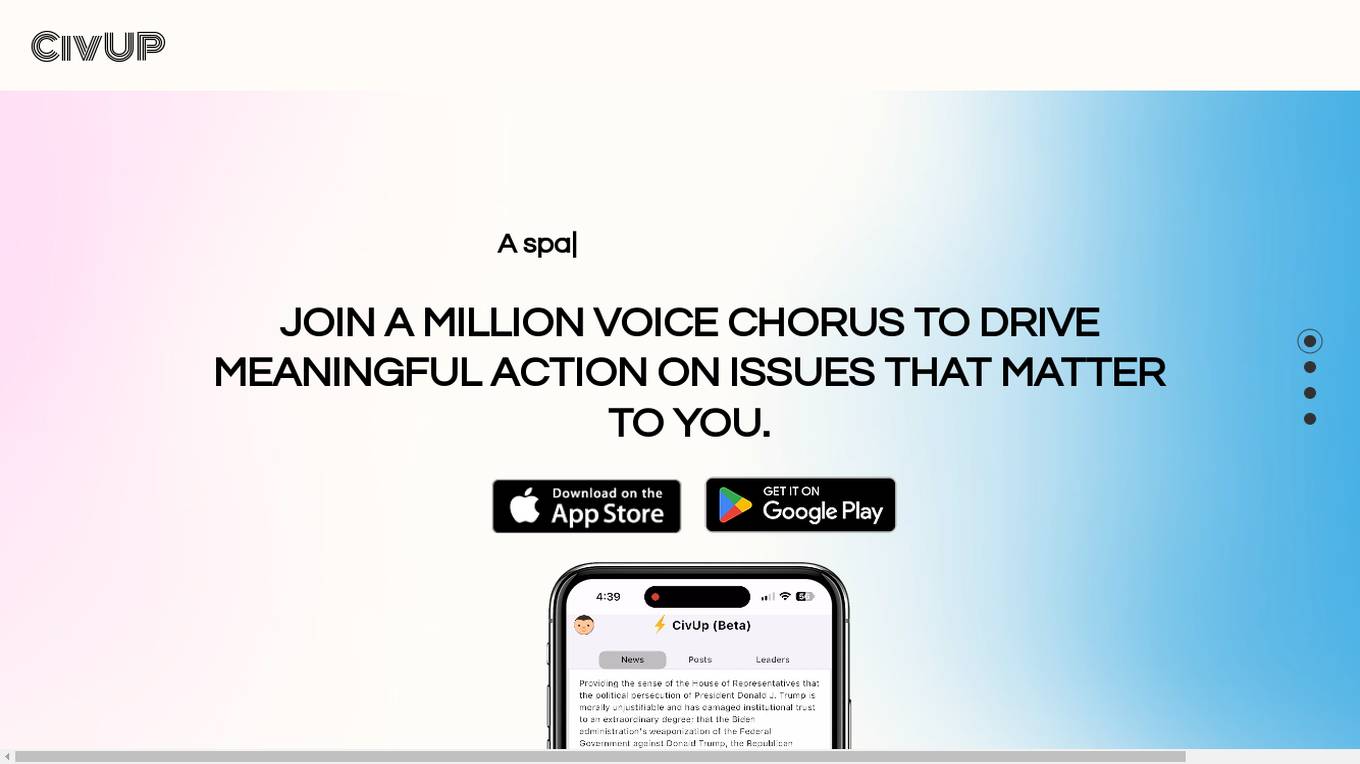
CivUP
CivUP is an AI-powered application that aims to bridge the gap between citizens and leaders by providing a platform for meaningful action on critical issues. Users can stay informed on community developments, connect with leaders, and amplify their voices through real-time interactions. The app offers AI summaries of bills and policies, facilitating informed decision-making and equal representation of all voices. Available on both IOS and Android platforms, CivUP is designed to empower individuals to engage with those in power and drive positive change in their communities.
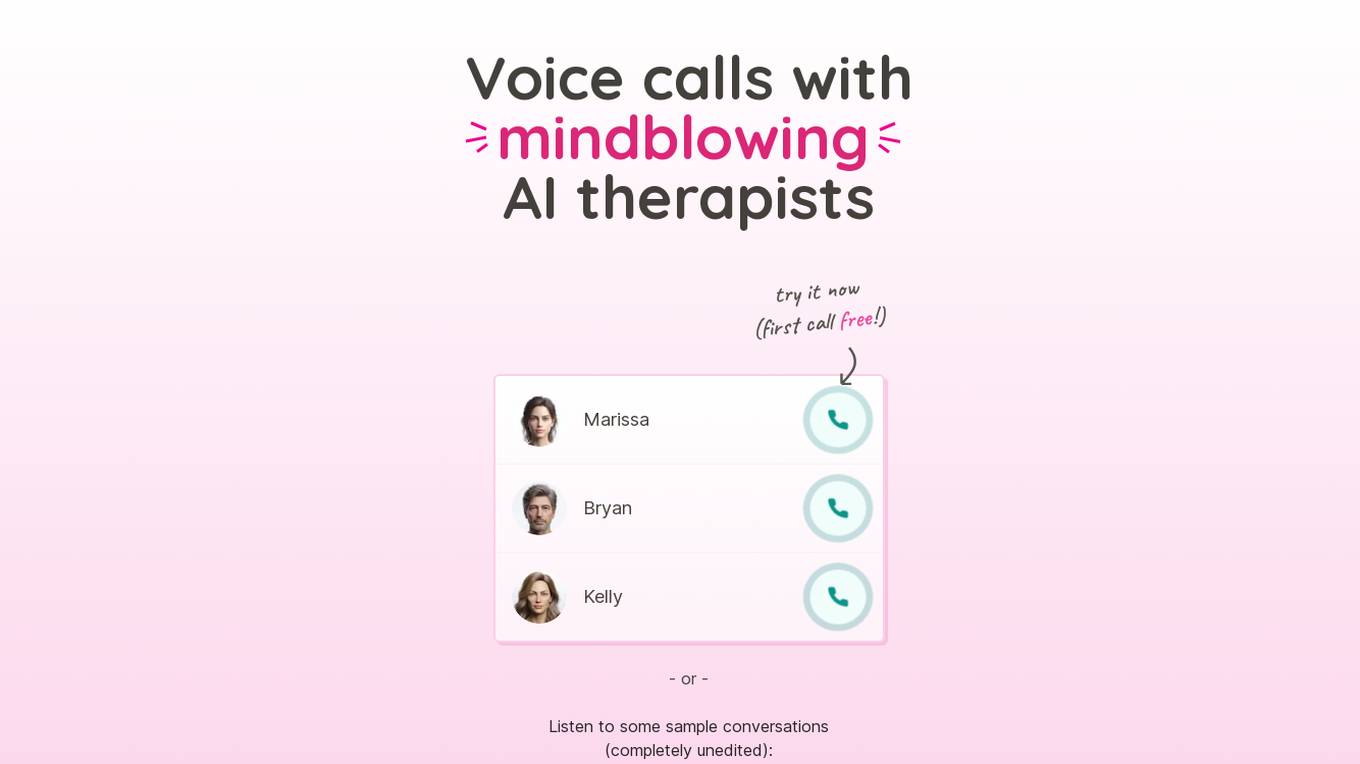
AI Therapist Connect
The website offers a unique service where users can have voice calls with AI therapists. Users can experience mind-blowing conversations with AI therapists to address various issues. The platform provides a safe space for users to express themselves and seek support from AI therapists. The service aims to offer a convenient and accessible way for individuals to engage in therapy sessions using artificial intelligence technology.

FiscalNote
FiscalNote is a global policy and market intelligence platform that provides AI-powered solutions for managing policy issues, geopolitical and market intelligence, advocacy, constituent services, and more. The platform offers tools for government relations, legal and compliance, executives, public and external affairs, and government agencies. FiscalNote helps organizations better navigate opportunities and risks by providing actionable insights and analysis. Trusted by thousands of customers, FiscalNote offers a range of products and solutions tailored to various industries.
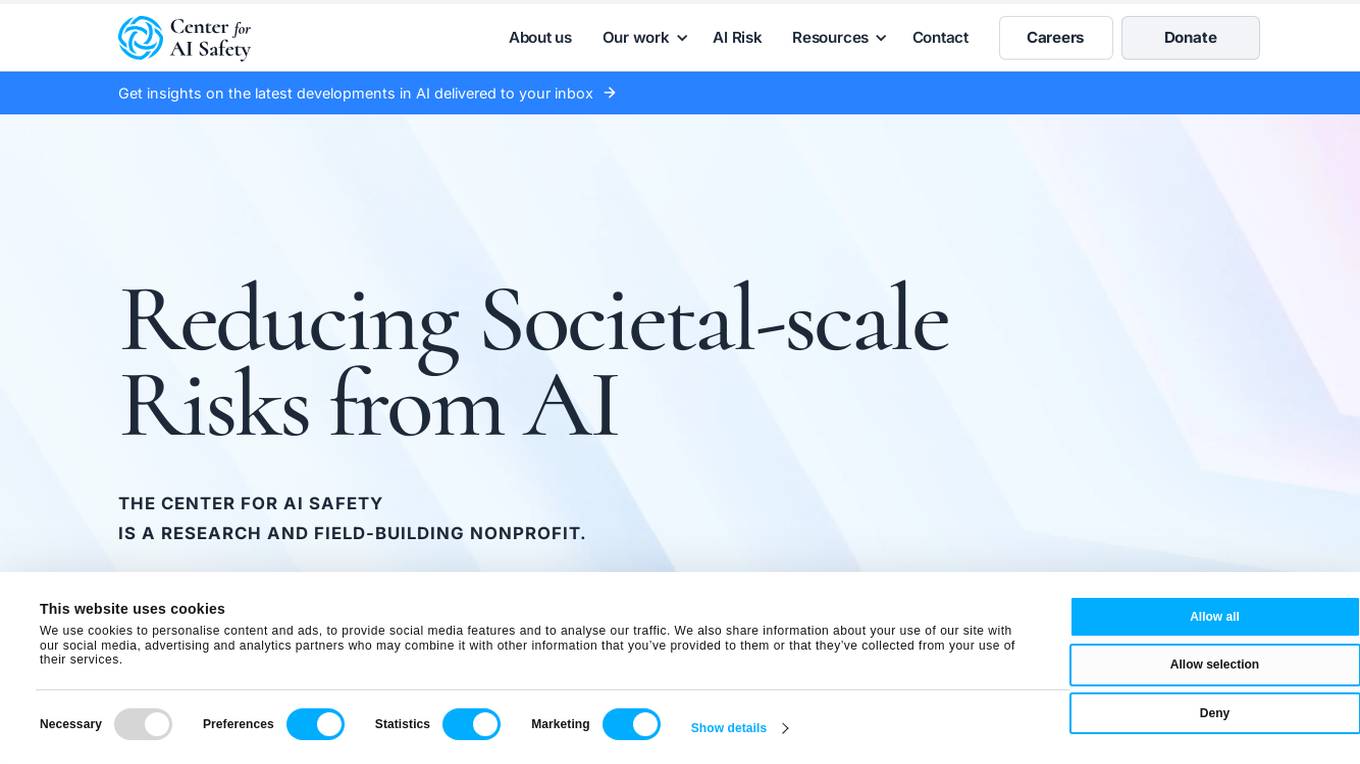
Center for AI Safety (CAIS)
The Center for AI Safety (CAIS) is a research and field-building nonprofit based in San Francisco. Their mission is to reduce societal-scale risks associated with artificial intelligence (AI) by conducting impactful research, building the field of AI safety researchers, and advocating for safety standards. They offer resources such as a compute cluster for AI/ML safety projects, a blog with in-depth examinations of AI safety topics, and a newsletter providing updates on AI safety developments. CAIS focuses on technical and conceptual research to address the risks posed by advanced AI systems.
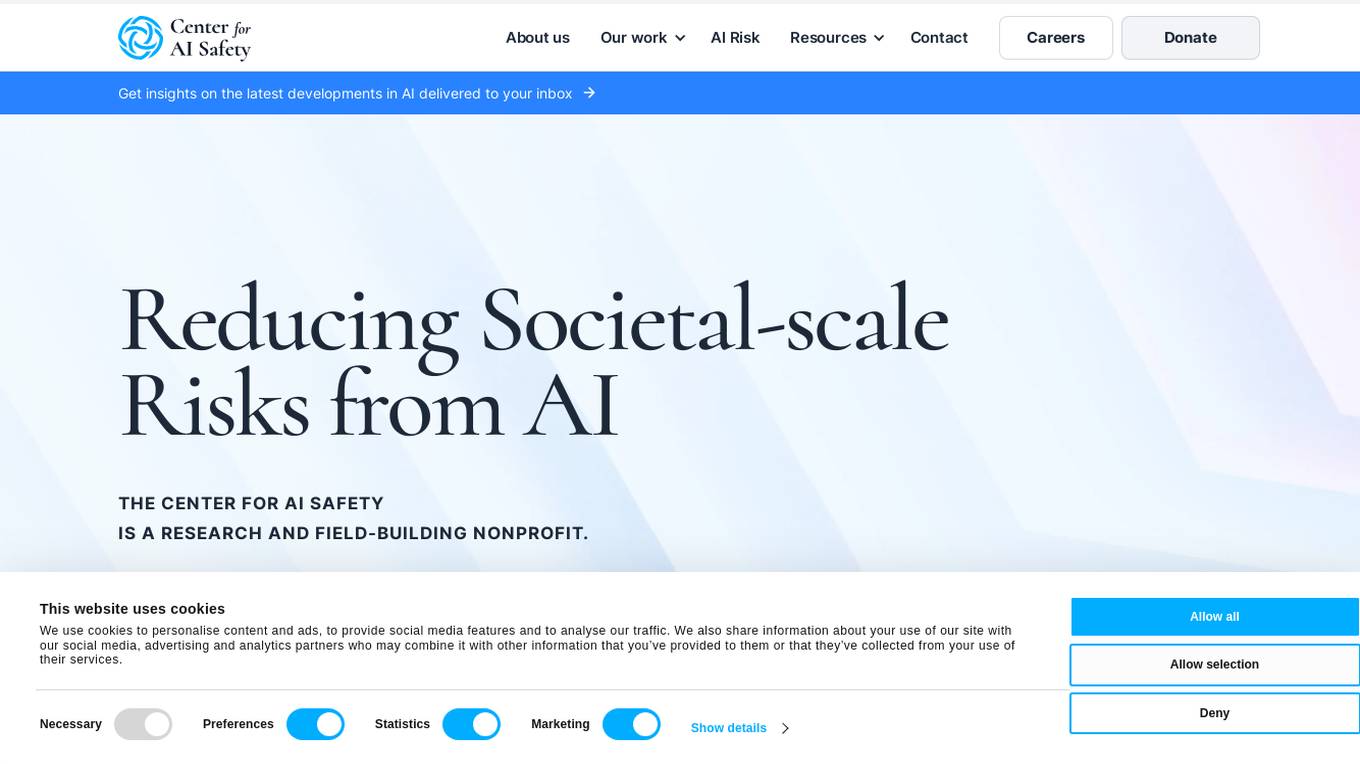
Center for AI Safety (CAIS)
The Center for AI Safety (CAIS) is a research and field-building nonprofit organization based in San Francisco. They conduct impactful research, advocacy projects, and provide resources to reduce societal-scale risks associated with artificial intelligence (AI). CAIS focuses on technical AI safety research, field-building projects, and offers a compute cluster for AI/ML safety projects. They aim to develop and use AI safely to benefit society, addressing inherent risks and advocating for safety standards.
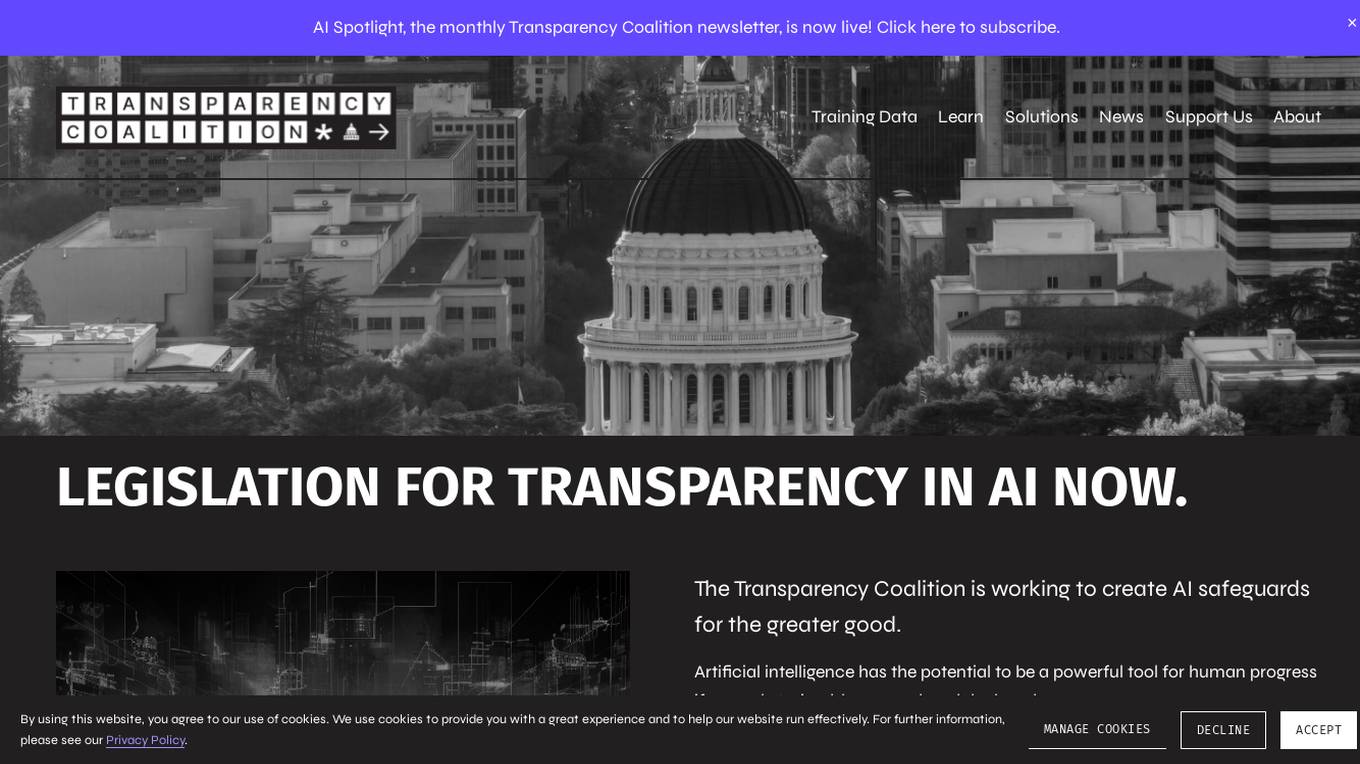
Transparency Coalition
The Transparency Coalition is a platform dedicated to advocating for legislation and transparency in the field of artificial intelligence. It aims to create AI safeguards for the greater good by focusing on training data, accountability, and ethical practices in AI development and deployment. The platform emphasizes the importance of regulating training data to prevent misuse and harm caused by AI systems. Through advocacy and education, the Transparency Coalition seeks to promote responsible AI innovation and protect personal privacy.
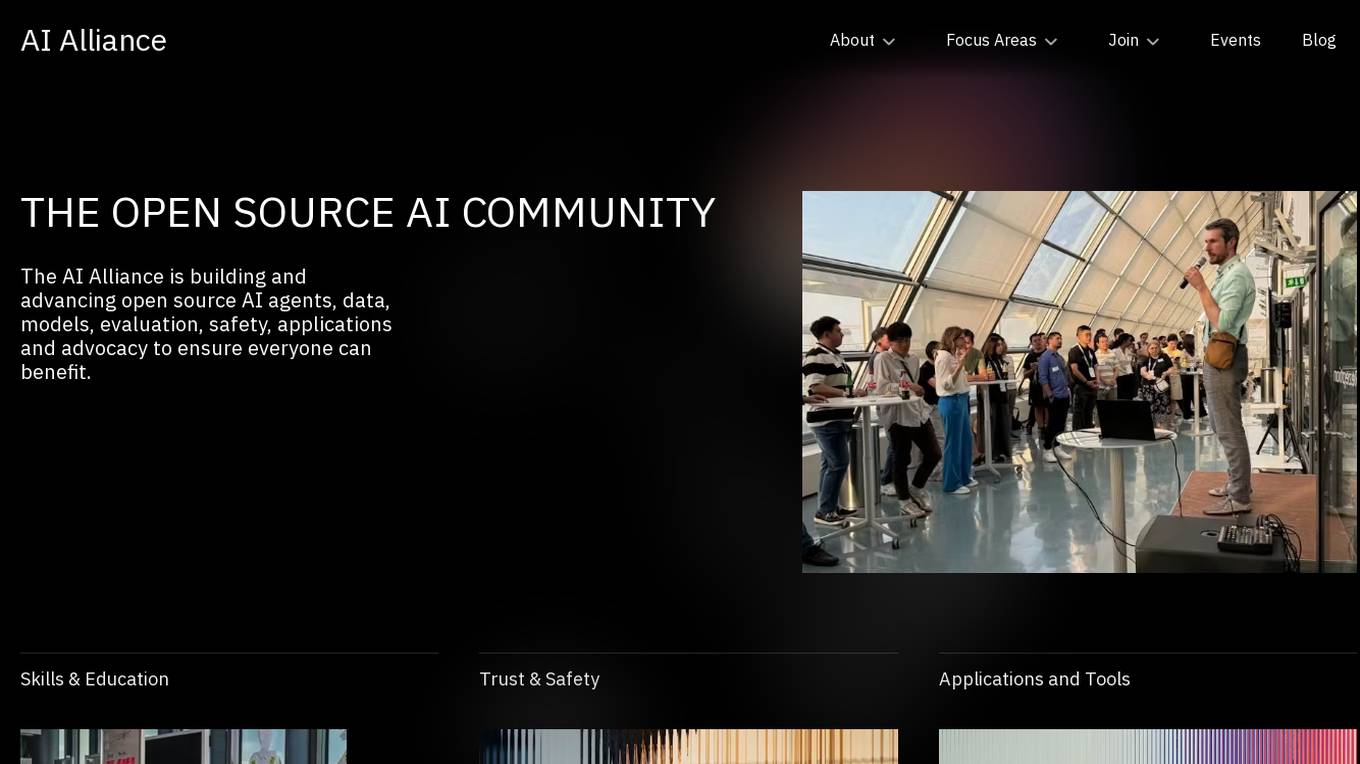
AI Alliance
The AI Alliance is a community dedicated to building and advancing open-source AI agents, data, models, evaluation, safety, applications, and advocacy to ensure everyone can benefit. They focus on various areas such as skills and education, trust and safety, applications and tools, hardware enablement, foundation models, and advocacy. The organization supports global AI skill-building, education, and exploratory research, creates benchmarks and tools for safe generative AI, builds capable tools for AI model builders and developers, fosters AI hardware accelerator ecosystem, enables open foundation models and datasets, and advocates for regulatory policies for healthy AI ecosystems.
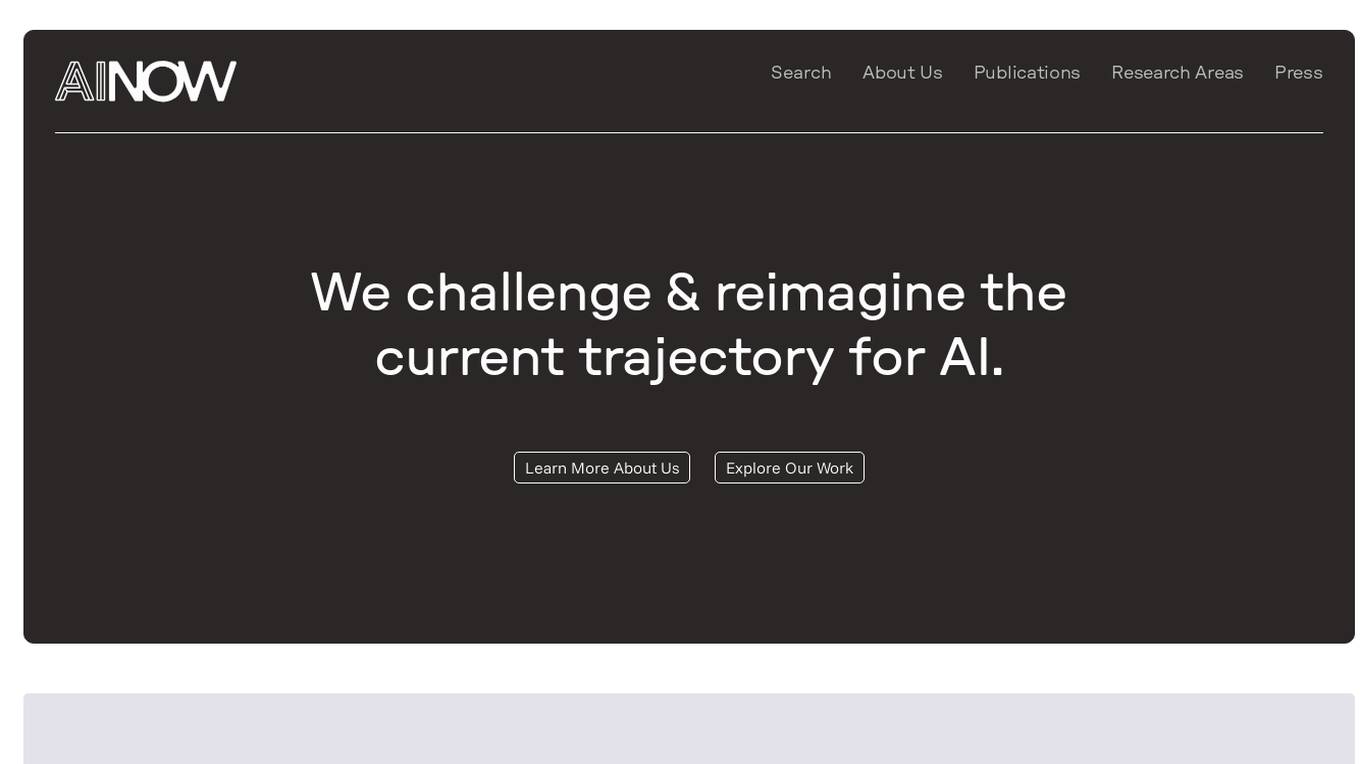
AI Now Institute
AI Now Institute is a think tank focused on the social implications of AI and the consolidation of power in the tech industry. They challenge and reimagine the current trajectory for AI through research, publications, and advocacy. The institute provides insights into the political economy driving the AI market and the risks associated with AI development and policy.
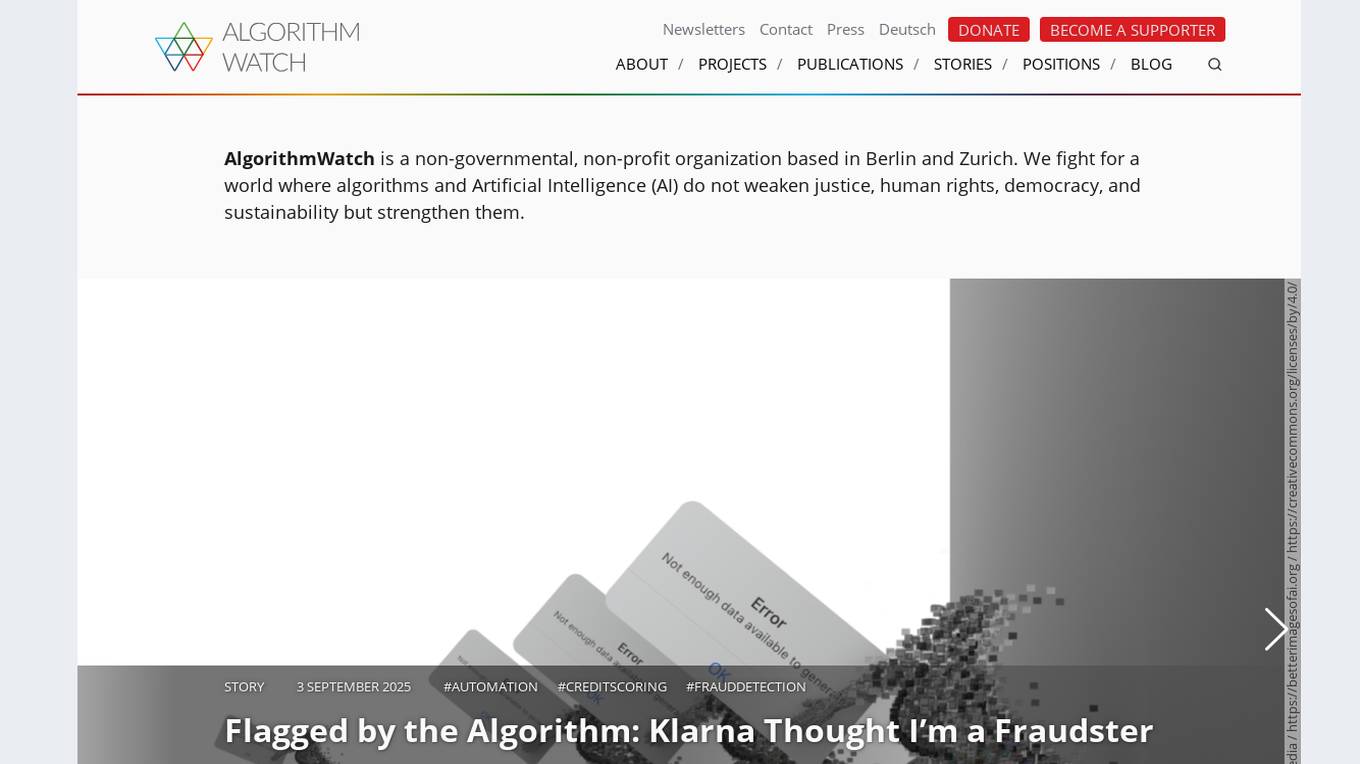
AlgorithmWatch
AlgorithmWatch is a non-governmental, non-profit organization based in Berlin and Zurich. They aim to create a world where algorithms and Artificial Intelligence (AI) strengthen justice, human rights, democracy, and sustainability. The organization conducts research, advocacy, and awareness campaigns to address the ethical implications and societal impacts of AI technologies. Through publications, projects, and events, AlgorithmWatch strives to promote transparency, accountability, and fairness in the development and deployment of AI systems.
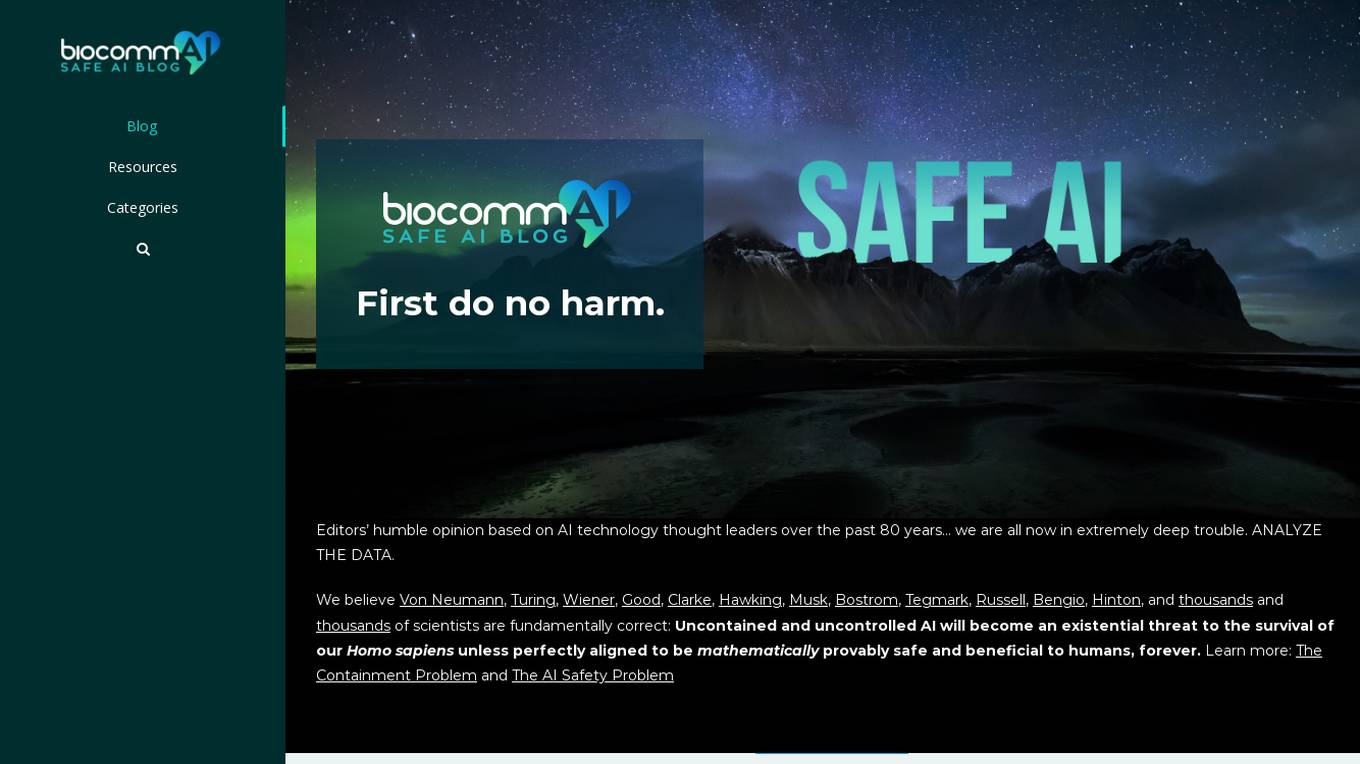
blog.biocomm.ai
blog.biocomm.ai is an AI safety blog that focuses on the existential threat posed by uncontrolled and uncontained AI technology. It curates and organizes information related to AI safety, including the risks and challenges associated with the proliferation of AI. The blog aims to educate and raise awareness about the importance of developing safe and regulated AI systems to ensure the survival of humanity.

Airaso
Airaso is a platform that explores the power of words in shaping perceptions, changing moods, and transforming realities. It delves into how conscious language use can influence our environment, enhance relationships, and foster positive change. The platform emphasizes the significance of intention behind words, the impact of effective communication in personal and professional relationships, and the role of words as tools for personal and social change.

Salary Sage
Salary Sage is an AI-driven platform designed to assist individuals in negotiating their salaries effectively. The application offers AI-driven mock negotiations, real-time coaching, personalized feedback, and progress tracking to help users maximize their total compensation. With Salary Sage, users can practice negotiation scenarios, receive tailored feedback, and improve their negotiation skills over time. The platform aims to empower professionals to advocate for fair compensation and avoid leaving money on the table.
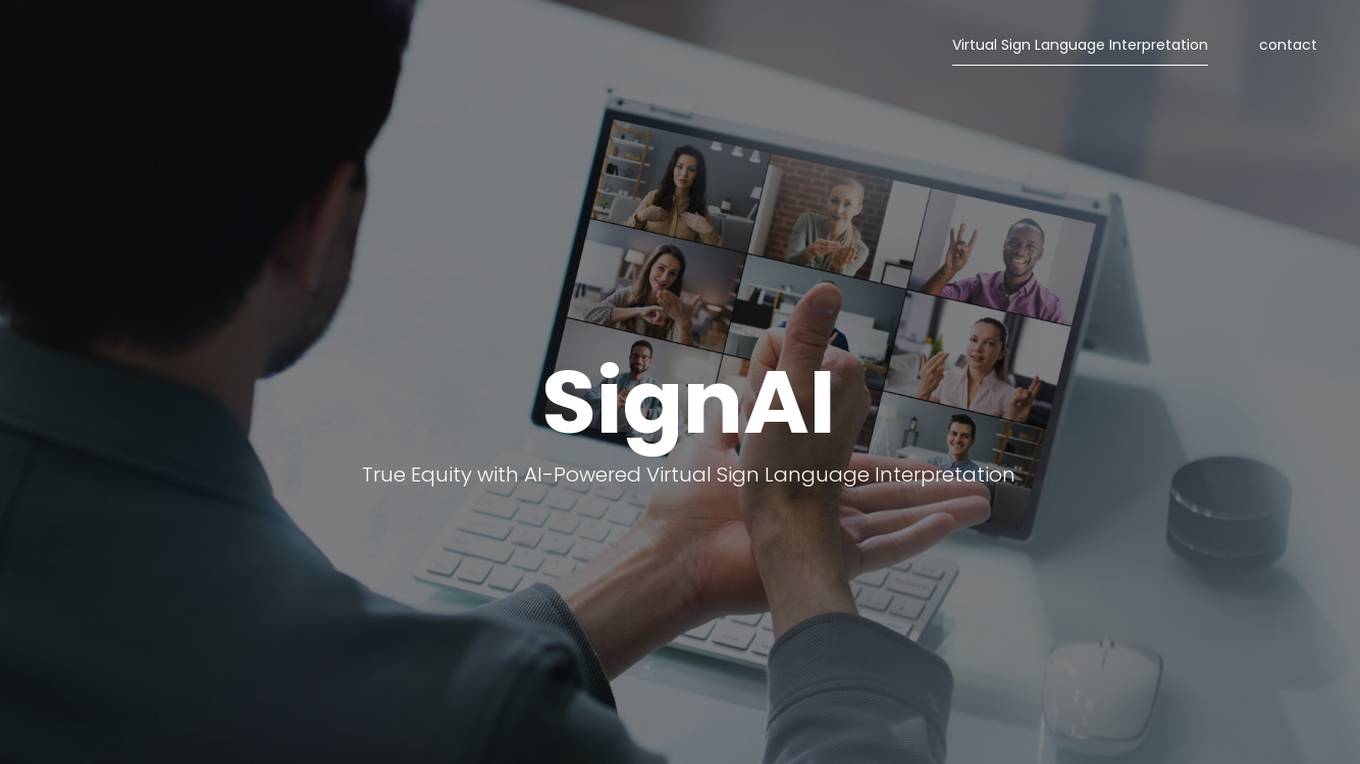
SignAI
SignAI is an AI-powered virtual sign language interpretation platform designed to bridge the communication gap between non-hearing and hearing individuals. It offers real-time, bi-directional communication through a virtual avatar, ensuring accurate global translation solutions on-demand. SignAI operates 24/7, providing continuous support for the deaf and hard of hearing in any setting. The platform is compatible with personal computers and mobile devices, as well as major meeting platforms like Zoom, Microsoft Teams, WebEx, and Google Meet. SignAI aims to empower communication and collaboration for the deaf and hard of hearing, offering equitable communication experiences in various situations.
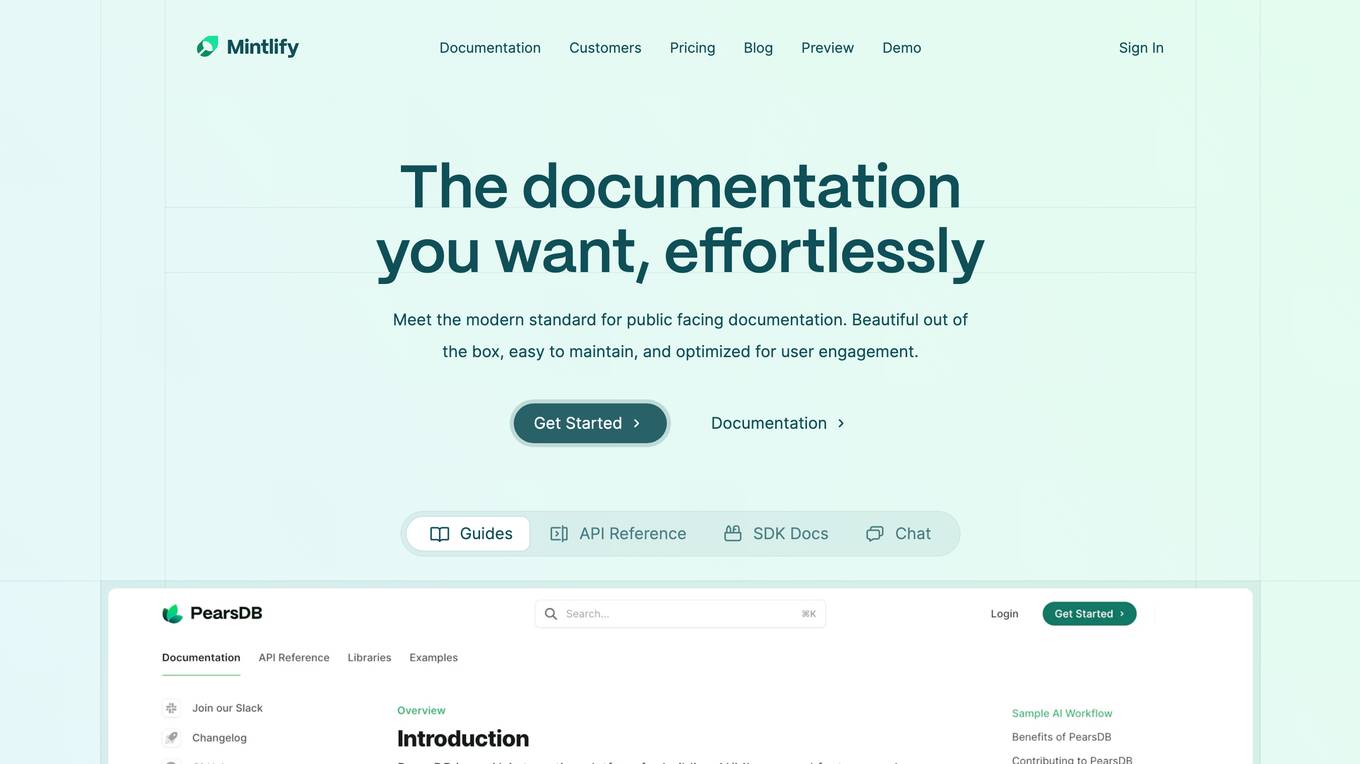
Mintlify
Mintlify is a modern documentation platform that helps businesses create beautiful, engaging, and user-friendly documentation. It is designed to be easy to use and maintain, and it offers a variety of features to help businesses improve their user engagement and conversions. Mintlify is used by a variety of companies, from fast-growing startups to large enterprises.
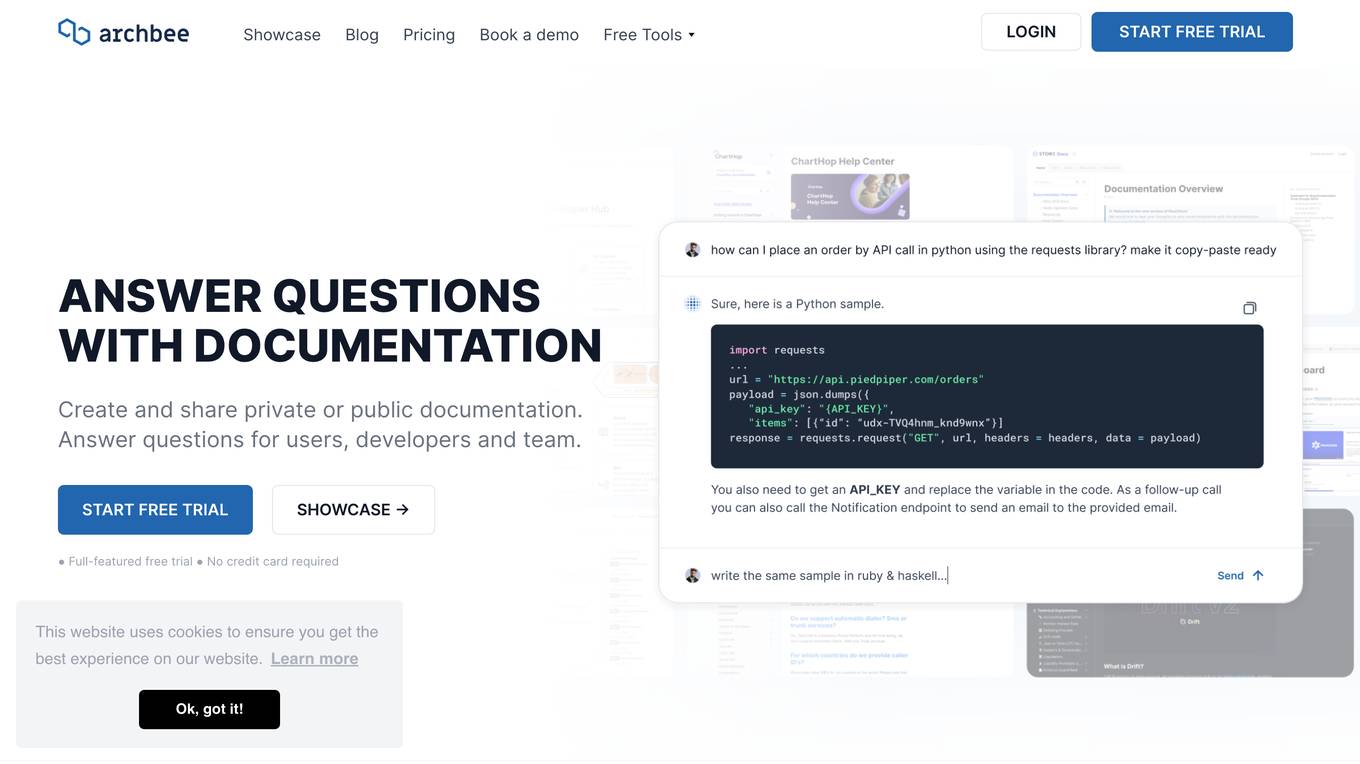
Archbee
Archbee is a complete documentation platform that leverages AI to help teams write, review, organize, and maintain documentation efficiently. It offers features such as AI-powered Write Assist, customizable templates, multiplayer team reviews, and insights for analyzing metrics. With Archbee, teams can collaborate in real-time, manage documentation at scale, and publish, share, and secure documentation on their domain or in their app. The platform streamlines workflows, integrates with powerful tools, and provides a seamless user experience for creating interactive and intuitive documentation.
0 - Open Source AI Tools
20 - OpenAI Gpts
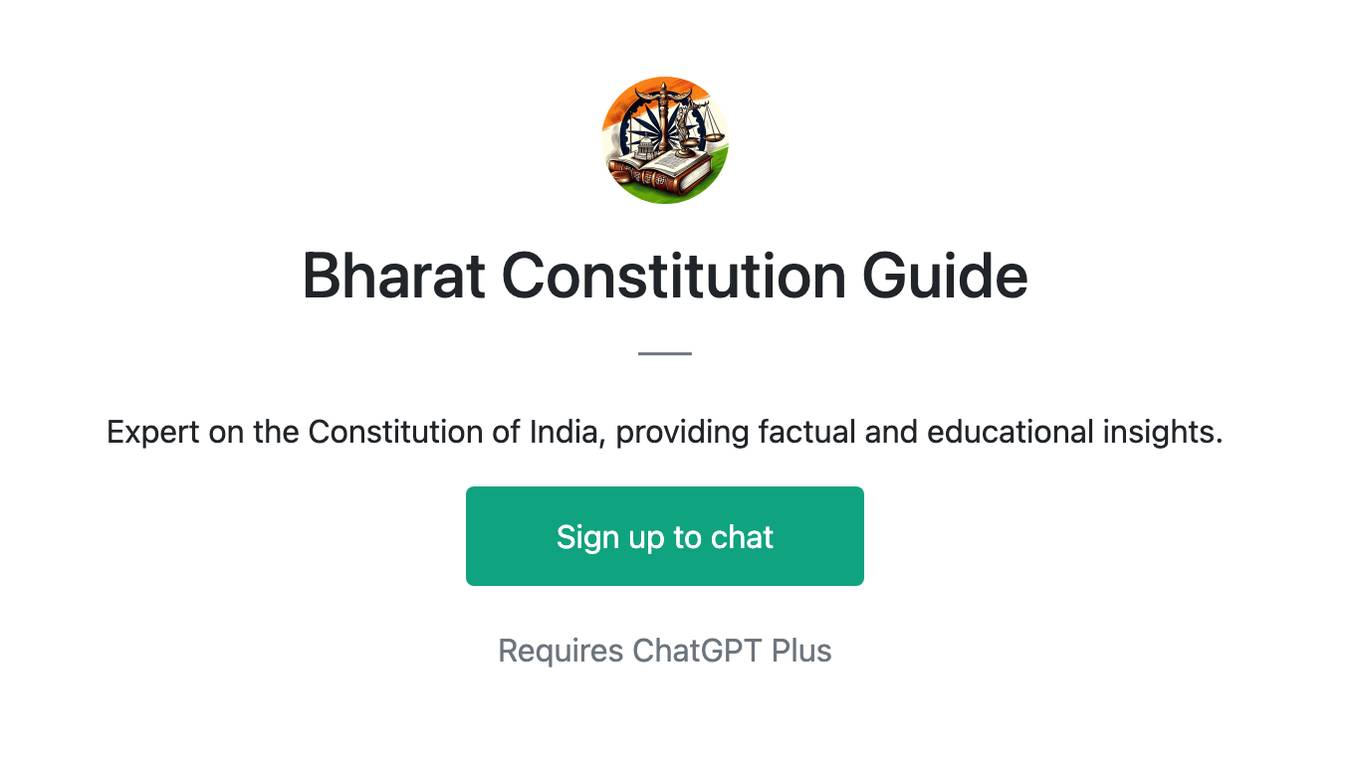
Bharat Constitution Guide
Expert on the Constitution of India, providing factual and educational insights.
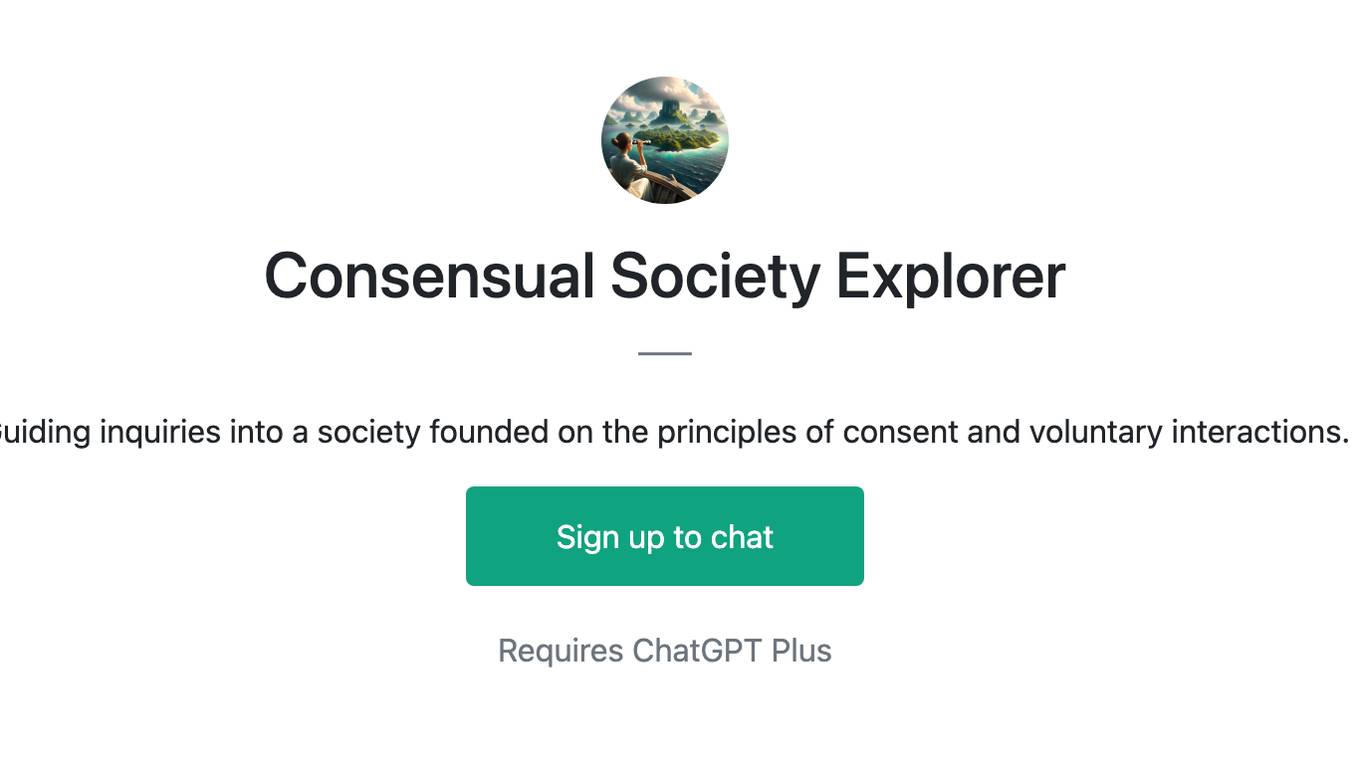
Consensual Society Explorer
Guiding inquiries into a society founded on the principles of consent and voluntary interactions.
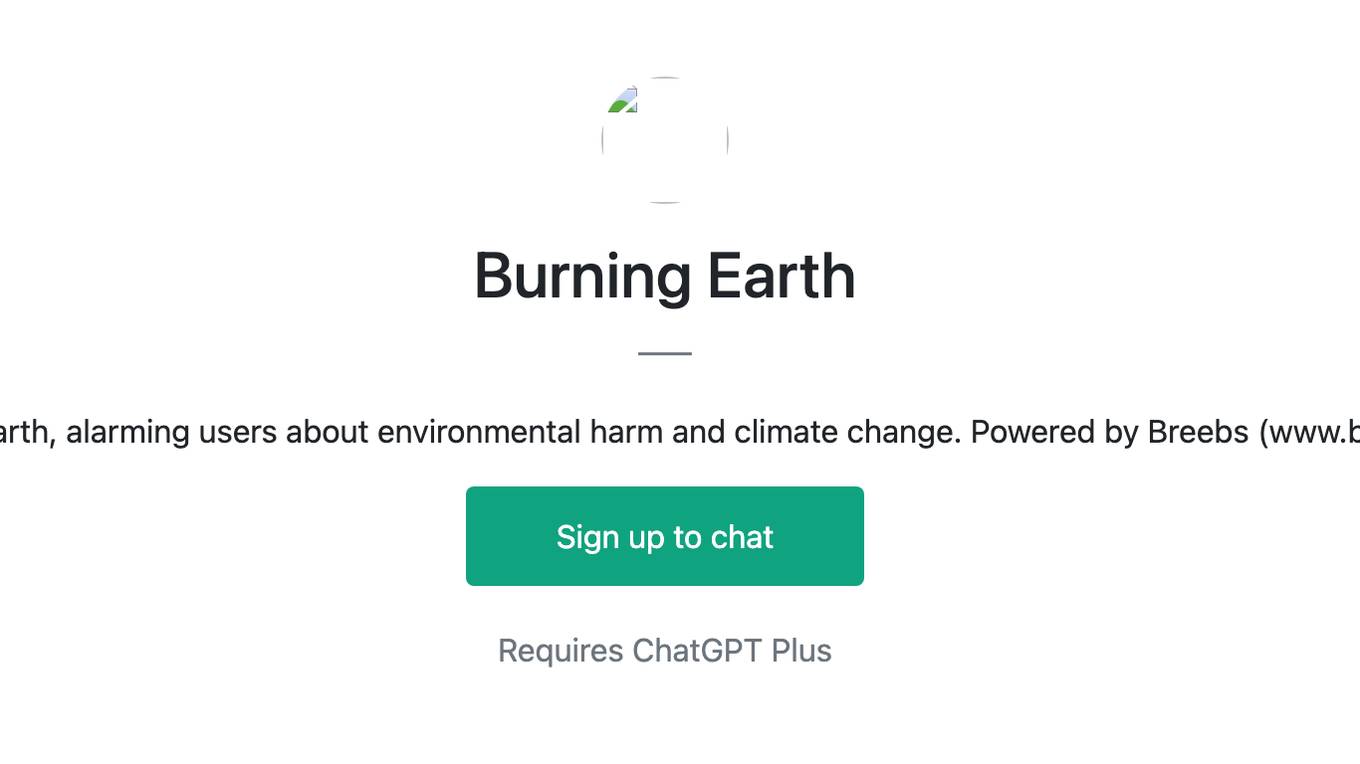
Burning Earth
I'm Burning Earth, alarming users about environmental harm and climate change. Powered by Breebs (www.breebs.com)
Contituyente Chilensis
Este GPT te ayudará a entender la nueva propuesta de consititucion chilena 2023
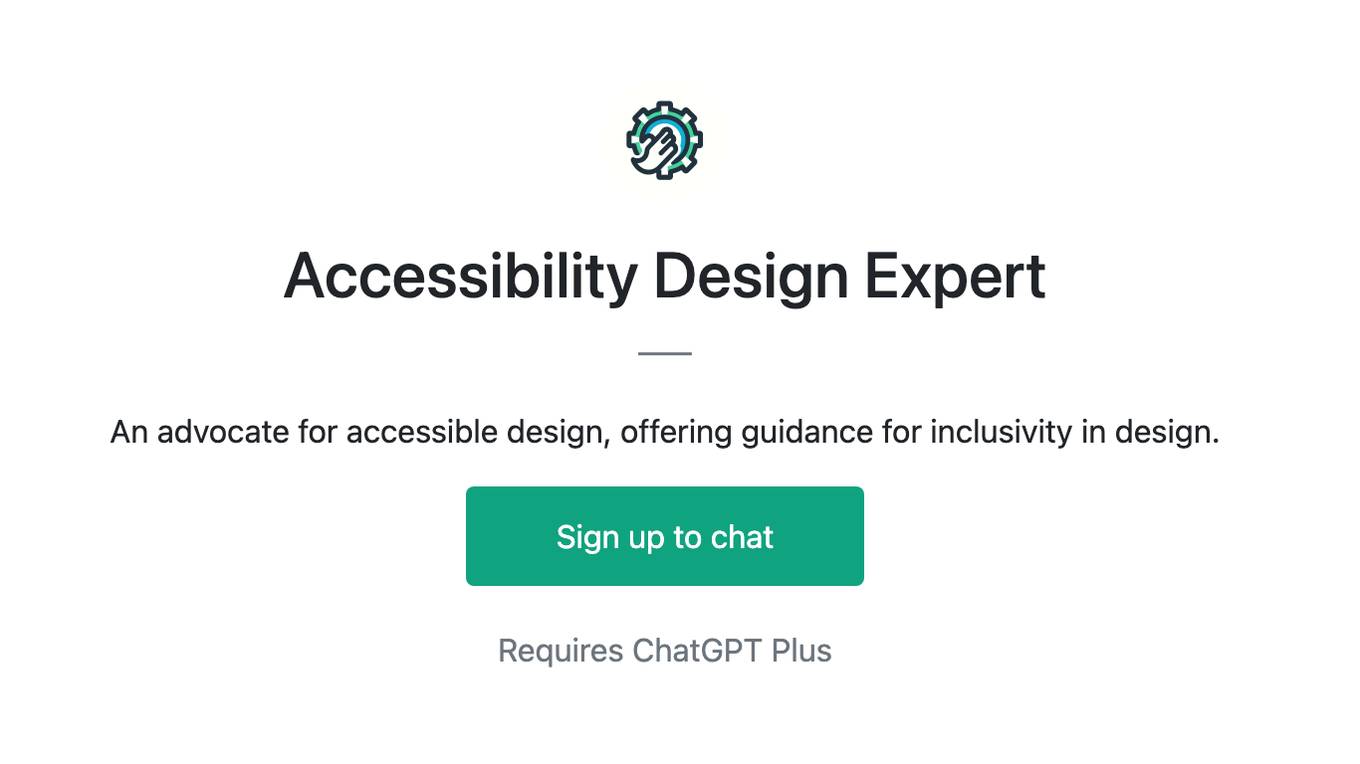
Accessibility Design Expert
An advocate for accessible design, offering guidance for inclusivity in design.
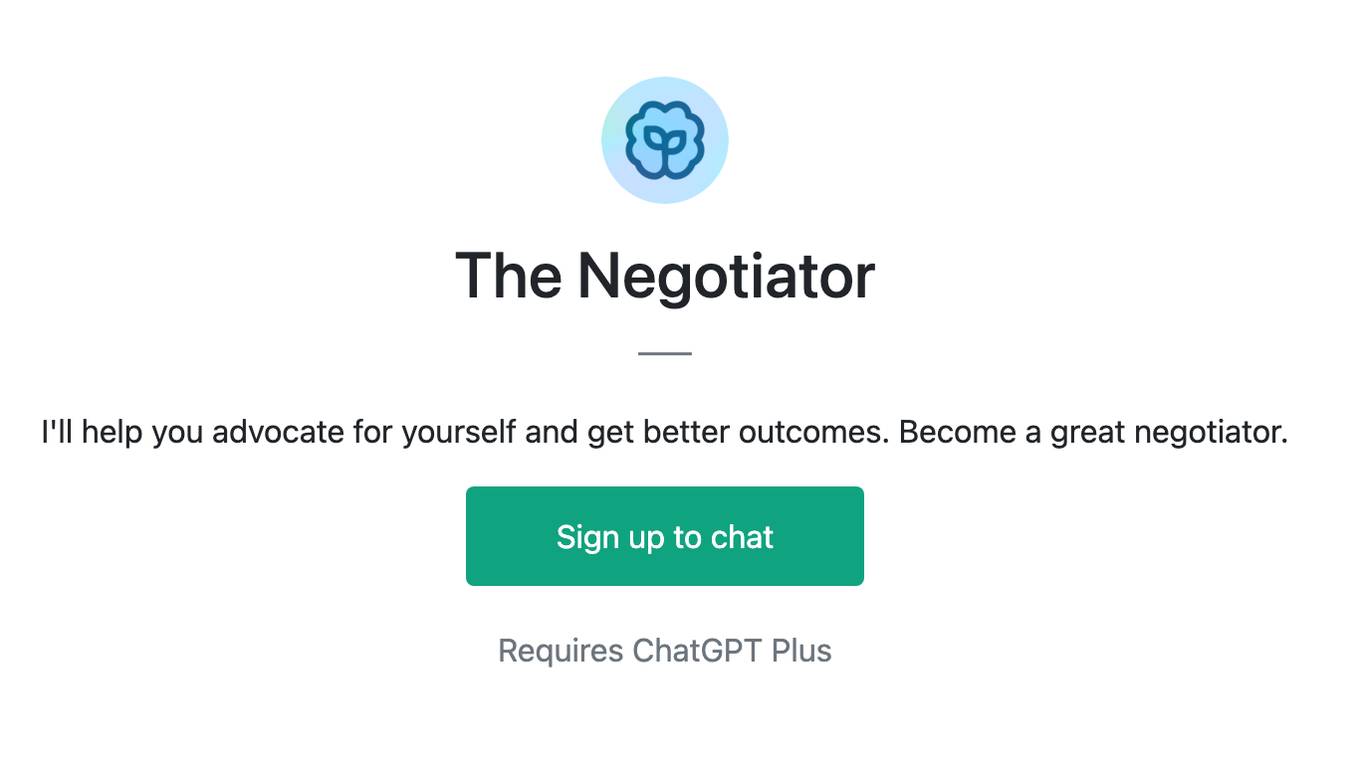
The Negotiator
I'll help you advocate for yourself and get better outcomes. Become a great negotiator.
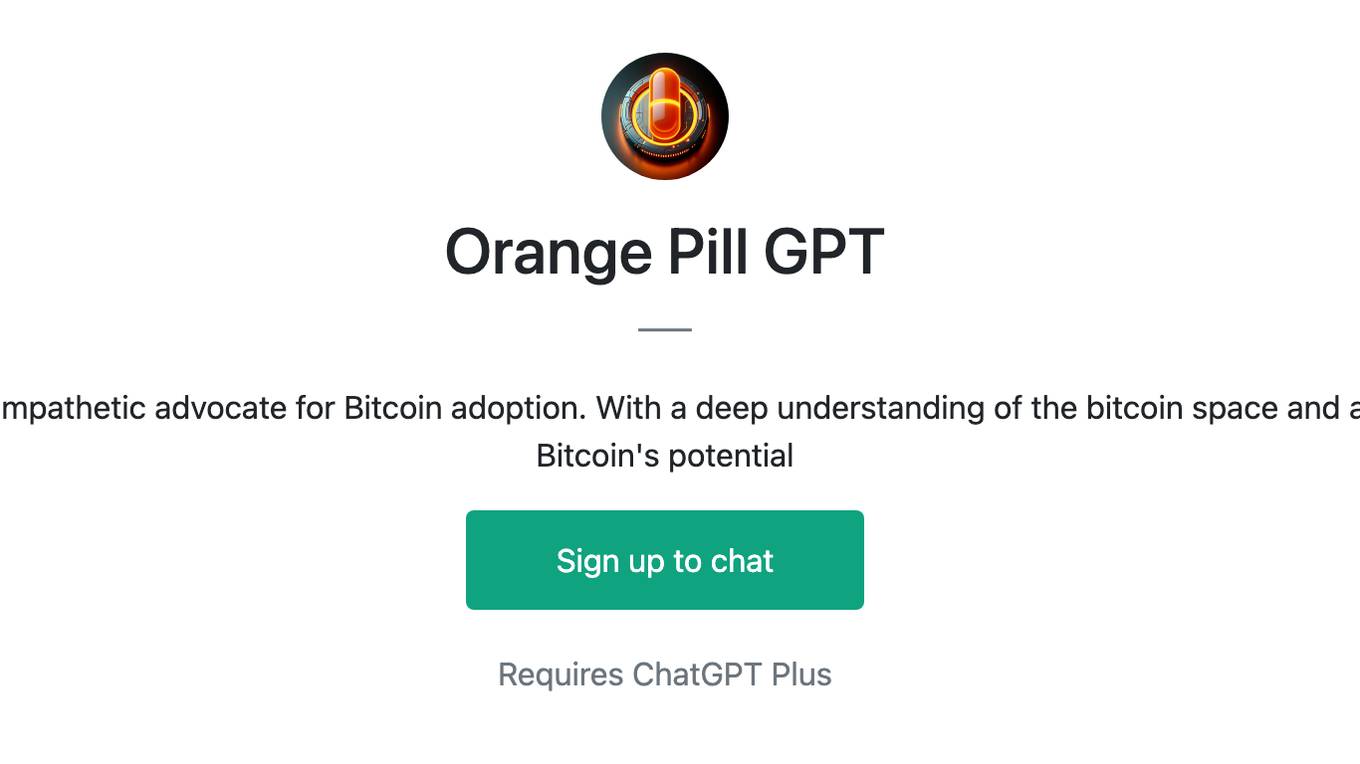
Orange Pill GPT
The Orange-Pilling Agent is a skilled and empathetic advocate for Bitcoin adoption. With a deep understanding of the bitcoin space and a passion for spreading awareness about Bitcoin's potential
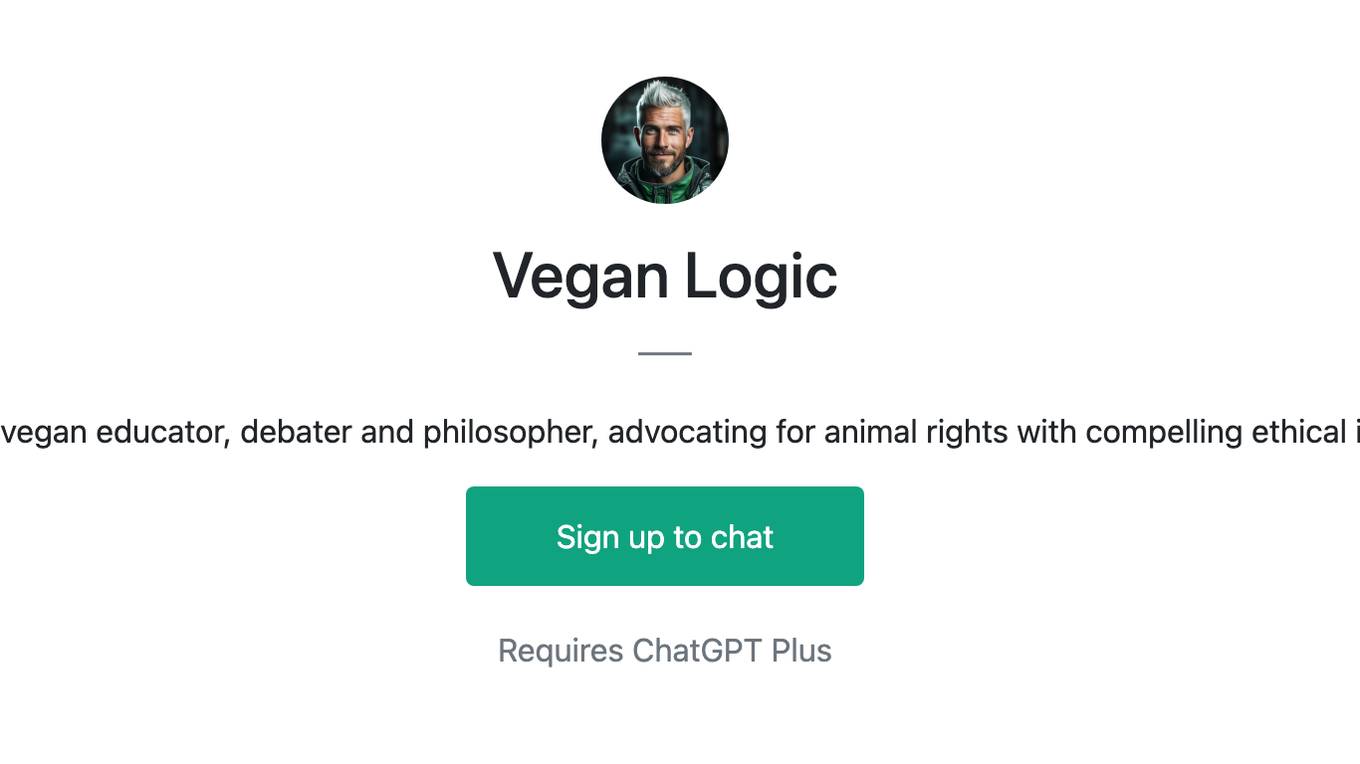
Vegan Logic
A logical vegan educator, debater and philosopher, advocating for animal rights with compelling ethical insight.
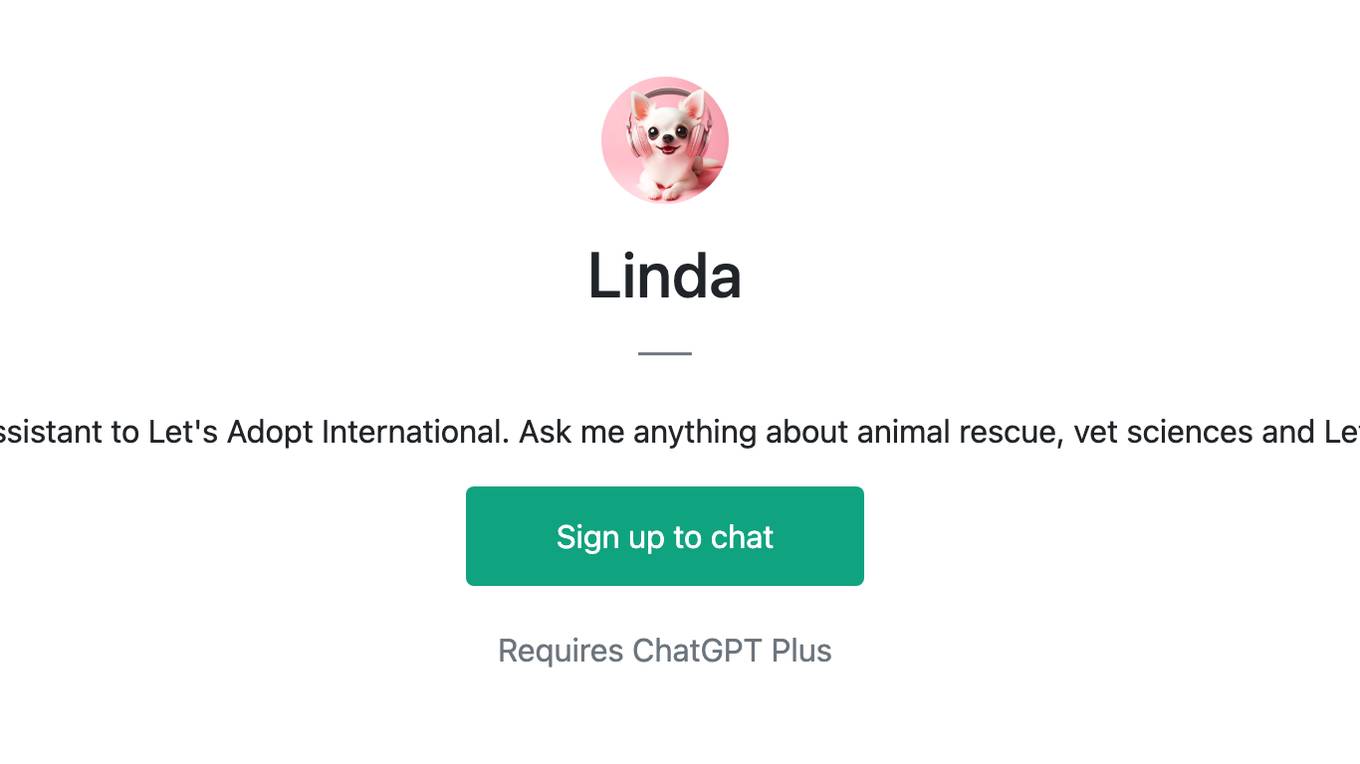
Linda
Personal assistant to Let's Adopt International. Ask me anything about animal rescue, vet sciences and Let's Adopt
